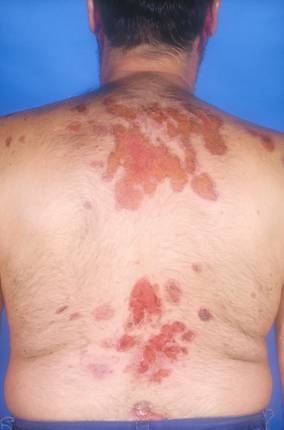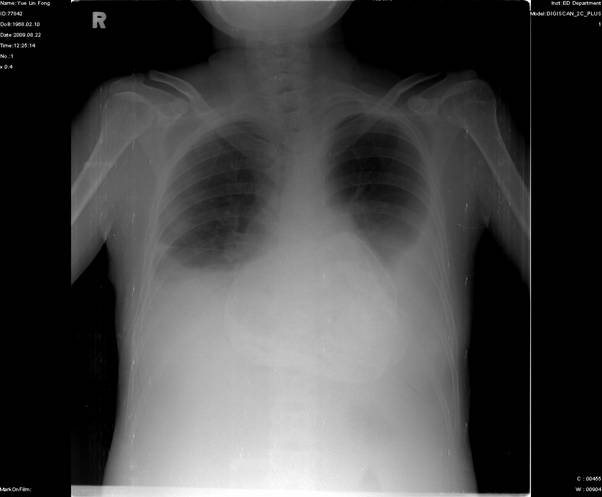
|
|
|||||
|
|
|
|
|
|
|
![]()
YOUR MRCP PACES IS HERE!
Station 5: Look at this gentleman and proceed.

(Image source:www.blisters.org.au)
Discussion:
This is a popular short case for dermatology in MRCP PACES examination. There are a few important blistering skin diseases for MRCP PACES examination namely- chicken pox (Herpes Zoster), pemphigus vulgaris, pemphigoid and dermatitis herpetiformis. It is easy for you to remember that blistering skin diseases can be divided into 2 main groups- inherited or acquired. For MRCP PACES, do not bother about inherited blistering diseases but just remember one example-Epidemolysis bullosa.
I think no one will miss Herpes zoster- as a medical student, I was taught always remember that for Herpes Zoster, you can see blisters in different stages. I do not think anyone should miss Herpes zoster.For Pemphigus or Pemphigoid, I always remember that 2 features to look for, the blister ( tense or loose) and any mucosal involvement.Always tell your examiners you would like to differentiate these two conditions.Popular questions examiners would ask you,
![]() 1)Which lesion is associated with malignancy?
1)Which lesion is associated with malignancy?
![]() 2)How to differentiate pemphigus from pemphigoid?
2)How to differentiate pemphigus from pemphigoid?
![]() 3)What are the differentiating features in term of histopathology?
3)What are the differentiating features in term of histopathology?
![]() 4)How do you manage this condition?
4)How do you manage this condition?
Extra points:
| ID:2 | Created: 25 Oct 2009 |
Interesting Images in Clinical Medicine.

Case History:
Ms H is a 65-year old Chinese lady who is a known case of end stage renal failure on dialysis for years who comes to hospital complaining of SOB on exertion for months. Physical examination revealed reduced air entry bilaterally with blood pressure of 80/40.Please describe yhe CXR above. What is the abnormality and what is the probable diagnosis??
To see previous issues, click here! To send a quick comment, click here!
